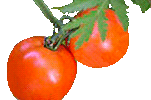Plant Notes - Vegetables
| GROW VEGETABLES AND FRUIT IN ZONE 9 - SACRAMENTO, CA REGION | |||
| The following pages have been written and compiled over many years of gardening to specifically address growing conditions in the Sacramento CA region. Outlying areas can expect slightly earlier frost dates in fall and later frost dates in spring. Feel free to copy these articles for your files. This content (Plant Notes-Vegetables) is licensed under a Creative Commons Attribution 3.0 License. | |||
| VEGETABLE | VARIETIES (that grow well here) | COMMENTS (helpful tips) |
|
| Carrots (Daucus carota sativus) | Royal Chantenay Supreme, Danvers, Scarlet Nantes, Cosmic Purple,Nantes, Little Fingers | ||
| Leeks (Allium ampeloprasum) | Falltime, Giant Musselburg | ||
| Lettuce (Lactuca sativa) | Four Seasons, Little Gem, Bronze Arrow, Red Ridinghood, Batavia Laura, Jericho, Salad Bowl, Parris Island Cos, Bk Seeded Simpson | ||
| Onions (Allium porrum) | Newburg, Rossa di Milano, Walla Walla, Siskiyou Sweet, Stockton red, Sweet Spanish, Bermuda | ||
| Peas (Pisum sativum) | Snap-Cascadia, Sugar Pod, Sugar Snap | ||
| Potatoes (Solanum tuberosum) | Yukon Gold, Red Gold, Yellow Fin, Caribe, Sangre, Carola | ||
| Spinach (Spinacia oleracea) | America, Bloomsdale, Noble Giant, Spargo, Winter Giant | ||
| Swiss Chard (Beta vulgaris cicla) | Burgundy, Rhubarb, Forkhook, Golden, Rainbow | ||
| Sustainable Urban Gardens |
|||
UCD Vegetable Planting Guide - Summer/Fall & Winter/Spring planting times for the Sacramento area
Eating on the Wild Side-Book How to choose, store, and prepare the best varieties of fruits and vegetables available today. How to eat to maximize your intake of the protective phytonutrients that nature puts in plants.
Our Mission
Provide educational outreach and support to Sacramento families and individuals
who can benefit from ecologically sustainable home gardens.
- Engaging people in healthy gardening which supports sustainability and the growing of food
- Information through website and pamphlets
- Mini workshops – ex. Soil Food Web and the basics to a healthy home garden; eco-friendly landscapes and gardens; how to build and plant a raised-bed garden
- Presentations - principles of sustainable urban gardening
- Media outreach – radio program: ex. how to grow an organic vegetable garden
